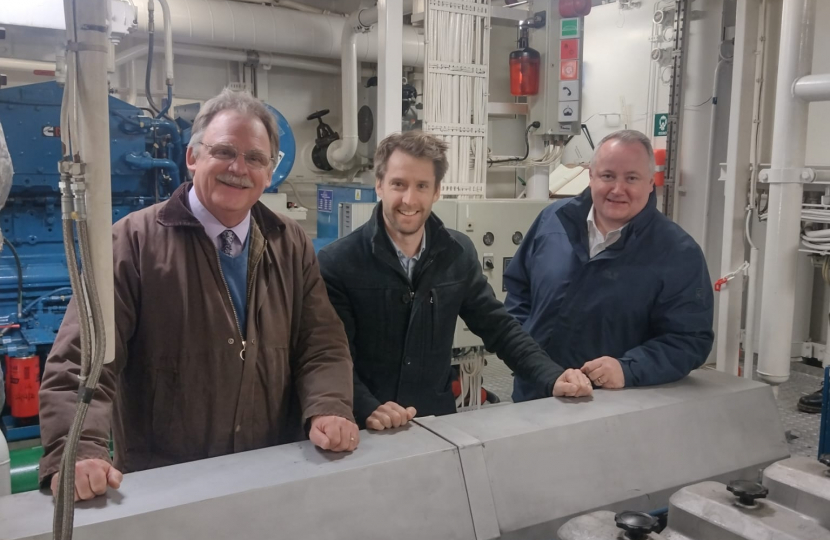
Darren Millar, Member of the Welsh Parliament for Clwyd West, helps mark the 22nd anniversary of the Prince Madog Research Vessel.
Darren, recently joined fellow MSs, Sam Rowlands and Mark Isherwood at Bangor University’s Marine Centre for Wales in Menai Bridge, followed by a tour around the Prince Madog.
He said:
"I was delighted to tour the Prince Madog and visit the Marine Centre to hear more about the cutting edge marine research based here in North Wales. There are huge opportunities for the blue economy in North Wales and Bangor University’s research will help us to realise these.
"I was pleased to hear about the joint venture between the School of Ocean Sciences at Bangor University and OS Energy, working towards making the research vessel net zero."
North Wales MS Sam Rowlands said:
"Bangor University is a leading provider of ocean sciences, and I was delighted to have the opportunity to visit the Marine Centre for Wales and talk with professors who teach in this excellent facility.
"It was also great to be shown around the Prince Madog, a state of the art purpose built research vessel which has been in service for the past 22 years.
"It is an amazing research vessel which enables both students and world--leading marine scientists to study the biology, chemistry, geology and physics of our seas. We are so lucky to have such a resource at work here in North Wales."
North Wales MS Mark Isherwood said:
"Prince Madog is a real success story and no doubt the envy of other university departments in the UK who also use the vessel as a teaching platform. It is a great facility for training the next generation of marine scientists."
The MSs met with Shelagh Malham – Professor in Marine Biology and Dean of College Research; John Turner – Professor in Marine Biology and Head of Ocean Sciences; Paul Spencer – Pro Vice Chancellor and Chris Drew – Head of Strategic Partnerships and Projects.
During the visit the politicians were told about how the Prince Madog was commissioned by Bangor University using a £3.5 million Joint Infrastructure Fund grant and is managed and operated by OS Energy.
The research vessel is used to provide real world training to students as well as world class research including feasibility and impact studies on the installation of renewable energy installations (tidal and wind). It also works with fisheries on becoming more sustainable, seabed mapping and trawling impacts.
Currently the university and OS Energy is now working towards making the research vessel net zero by refitting to a hybrid hydrogen system and developing a new propellor profile. This will help in the design process of the new vessel which is due in approximately 2030.



